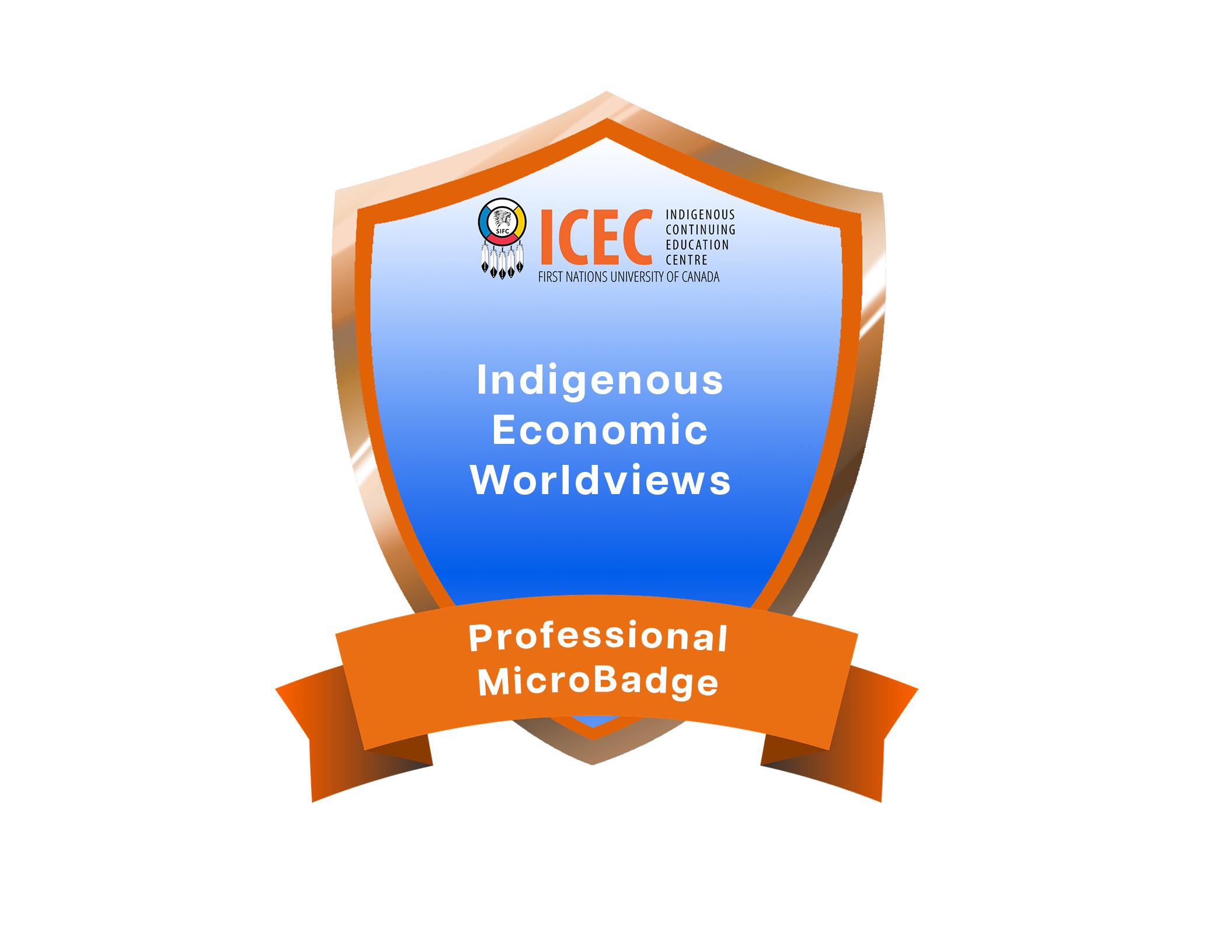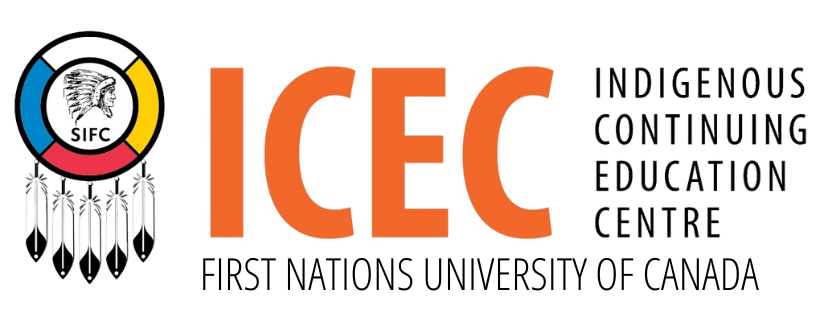ICR004 - Indigenous Economic Relations
Course Description
%20copy.bmp)
This course focuses on economic reconciliation from an historical perspective and explores Indigenous relations as they engaged with European traders, settlers, and government officials.
Indigenous Peoples across Turtle Island sustained their livelihood for thousands of years. Key to their sustainability was their relationship with Mother Earth, managing relations with other Indigenous Peoples, and then later with European colonists.
This course will foster insight into the economic perseverance of Indigenous peoples who have been and are, currently working to successfully merge into the Canadian economy. Learners will gain a deeper understanding of Indigenous economic relations to support actions of reconciliation at both personal and professional levels.
TRC Calls to Action
 This course supports several TRC Calls to Action, including Calls to Action $45 (iii. and iv.), #57, and #92. However, we would like to draw your attention to Call to Action #92 as it encompasses a deeper understanding of Indigenous economic relations to support actions of reconciliation at both personal and professional levels.
This course supports several TRC Calls to Action, including Calls to Action $45 (iii. and iv.), #57, and #92. However, we would like to draw your attention to Call to Action #92 as it encompasses a deeper understanding of Indigenous economic relations to support actions of reconciliation at both personal and professional levels.
Business and Reconciliation #92
92. We call upon the corporate sector in Canada to adopt the United Nations Declaration on the Rights of Indigenous Peoples as a reconciliation framework and to apply its principles, norms, and standards to corporate policy and core operational activities involving Indigenous peoples and their lands and resources. This would include, but is not limited to, the following:
i. Commit to meaningful consultation, building respectful relationships, and obtaining the free, prior, and informed consent of Indigenous peoples before proceeding with economic development projects.
ii. Ensure that Aboriginal peoples have equitable access to jobs, training, and education opportunities in the corporate sector and that Aboriginal communities gain long-term sustainable benefits from economic development projects.
iii. Provide education for management and staff on the history of Aboriginal peoples, including the history and legacy of residential schools, the United Nations Declaration on the Rights of Indigenous Peoples, Treaties and Aboriginal rights, Indigenous law, and Aboriginal-Crown relations. This will require skills-based training in intercultural competency, conflict resolution, human rights, and anti-racism.
Learning Outcomes
- Explore concepts of relationality, respect, reciprocity, and responsibility.
- Describe Indigenous economic diversity.
- Discuss European arrival and colonial relations.
- Cultivate an awareness of local First Nations' perspectives and approaches to healthy economic relationships and activities.
- Discover the impact of relationships on economic reconciliation today.
- Explore current economic relations between Indigenous Nations, governments, and some non-Indigenous groups in Canada.
Skills and Competencies
- Analytical thinking
- Cultural awareness
- Historical analysis
- Knowledge application
Summary
-
Number of hours: 6 hours total

-
Assessment: Themes 1 to 6 include knowledge check questions that require learners to achieve a grade of 70% or higher to move on to the next section. At the end of the course, learners will need to pass the final assessment with a grade of 70% or higher to pass this course. Each quiz, including the final assessment, allows multiple attempts. As part of this course, in Theme 7: Moving Forward with Intention, learners are required to prepare an Economic Reconciliation Action Plan for personal and professional purposes. We encourage learners to commit to taking action by sharing their personal action plan with someone they trust and, second, sharing their professional action plan with their organization or business. Finally, we encourage learners to use a journal or other recording method to support their experience. Learners will be prompted to respond to self-reflection questions and record their responses throughout the course. Learners are not required to share their reflections.
-
Previous education required: None; this course does not have a required prerequisite.
-
Delivery: Online, self-paced
-
Completion timeline: Within two years from the term in which you begin the program.
FAQs
Is this course for everyone?
- Yes, this course is relevant to all people from all walks of life. The learners' life experiences will influence how they experience the course.
Some individuals and organizations may be GST-exempt.
- First Nations University of Canada is situated on the Star Blanket First Nation and is exempt from Provincial Sales Tax (PST). If you or your organization are exempt from Government Sales Tax (GST), please contact icec@firstnationsuniversity.ca to ensure that your invoice is prepared accordingly.
I need financial support. What funding options does ICEC recommend?
- Check out our Funding Opportunities here.
Who do I contact if I need help?
- Check out the ICEC Learner Support page to see if your question is answered in the FAQs. If your question remains unresolved, feel free to complete the form with your question, or you may contact icec@firstnationsuniversity.ca for assistance with any questions you may have. We are here to help! Support requests are received during regular office hours. Please expect a response within 24-48 hours.
